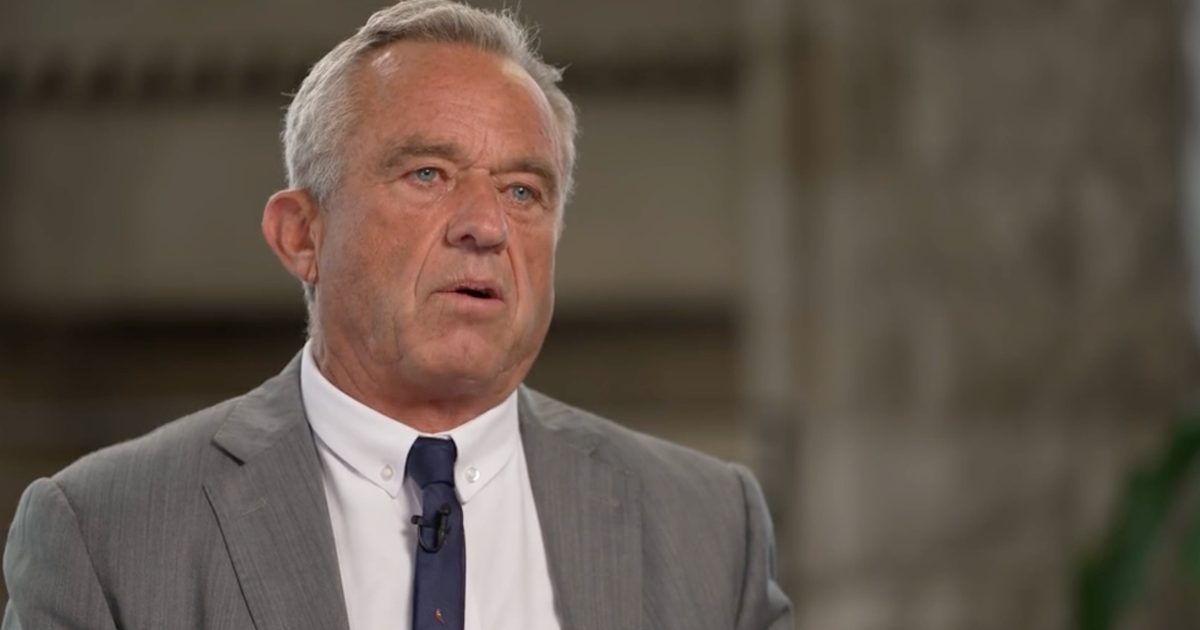CDC director says they're "poised" to do more gun research if Congress funds it
Dr. Robert Redfield, director of the Centers for Disease Control and Prevention, says the CDC is "poised" for additional research on the causes of gun violence if Congress chooses to give it additional funding. According to Redfield, how the CDC prioritizes its spending is largely driven by where "Congress puts the priority to want to fund us."
"We have a program called the National Violent Surveillance System… and so, we currently are recording violent deaths from all causes, including firearms. And so that is, that's ongoing," Redfield said.
In 1996, Congress passed the Dickey Amendment, which prohibits using public health funds to "advocate or promote gun control," but earlier this year, Health and Human Services Secretary Alex Azar said he would instruct the CDC to conduct research on the causes of gun violence.
Asked what kind of constraints the CDC faces from that provision, Redfield said, "I don't feel we have any restrictions to do research. The issue will be if Congress can give us funding to expand the research that we're currently able to do. … The secretary has also made it clear that we do not have a restriction to do research. Basically, what we need to do is get a funding mechanism for Congress to instruct us to do that research."
Redfield also spoke about what he considers considers the public health crisis of our time: the opioid epidemic. Preliminary CDC data shows the number of deadly drug overdoses nationwide has plateaued for six straight months even though more than 72,000 Americans died last year from drug overdoses. A little over 48,000 of those deaths were from opioids.
It's a crisis that hits close home for Redfield.
"It's personal to me. I think you know one of my six children almost died from cocaine that was contaminated with fentanyl," Redfield told "CBS This Morning" co-host John Dickerson. "You know, my wife and I have a very supportive family. But my own son was in tears when he finally told us that he was using cocaine. And I didn't understand, you know, why didn't he come earlier? Well, because he was made to feel ashamed. ... You know, who knows why he started using cocaine?
According to Redfield, we now know that 2 to 6 percent of people who get a single prescription for an opioid for routine procedures like wisdom tooth removal end up becoming chronically dependent.
"There's a pathophysiological reason for addiction… and the more we can embrace that, not make people feel bad about it," he said. "We don't make people feel bad if they have cancer. We have to allow people to embrace the medical illnesses they have and help them get the best therapy treatment so that they can go on to a productive and happy life."
Despite recent CDC numbers suggesting the rise in drug overdoses has leveled off, the CDC director said it is going to require "enormous effort" to get the epidemic under control.
"Well, I think, first and foremost, we have to recognize it for what it is. It's a medical condition. It's not a moral failing, right. And the second thing we have to recognize is it's actually a chronic medical condition," he said. "You know, I try to encourage people to support families like us that are trying to win the battle against opioid addiction. … Recognize that treatment success is possible. It should become the rule, not the exception."



